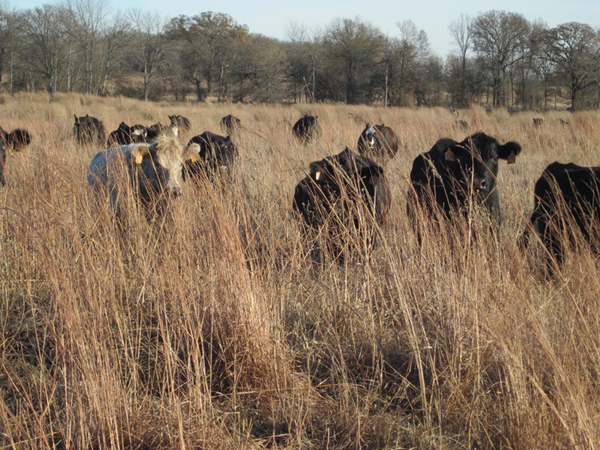- La Feria Community Holds Succesful Business Mixer Event
- Little Nashville to Take Place in Downtown Mercedes
- Lions Basketball Captures District Gold
- La Feria ISD Students Compete in Regional Chess Tournament
- Lions End First Half of 32-4A on a High Note
- La Feria ISD Held Another Successful Parent Conference
- Strong Appearance for Lions at Hidalgo Power Meet
- LFECHS Students Get to Meet Local Actress
- Students Participate in Marine Biology Camp
- Two LFECHS Students Qualify for All-State Band
Farm Bill Expiration Stalls Conservation Efforts on Farms
- Updated: October 19, 2018

Ebel Grasslands Ranch sits on 525 acres of native grasses near Sulphur Springs, where it has been a family farm for more than 100 years. Photo: Ebel Grasslands Ranch
by Stephanie Carson
SULPHUR SPRINGS, Texas – While Senators were moving forward with the confirmation of the next Supreme Court justice, what wasn’t moving on Capitol Hill was the Farm Bill that expired a week ago.
While the legislation largely stalled over the Supplemental Nutrition Assistance Program, the people who grow the food and livestock that feed us all also were impacted. One of them is Texas Rancher Karl Ebel, owner of Ebel Grasslands Ranch. He has used conservation funds to improve irrigation efficiency on his land.
“If the Farm Bill conservation funds are pulled back, guys that are trying to embrace new conservation ideas and methods, they need a push or incentive to try those methods,” Ebel said.
According to the National Wildlife Federation, Texas farmers received $116 million in conservation funding in 2016 alone, and $3.5 billion over the last 10 years. Until Congress reaches an agreement on the Farm Bill, conservation programs will be in limbo, with many already having received the funding for projects, but not having the authority to move forward.
Conservationists are urging Congress to keep funding levels strong and maintain wildlife protections for endangered species. Aviva Glaser, director of agriculture policy with the National Wildlife Federation, said these types of conservation programs help keep farms and ranches in private hands, while protecting wildlife habitat and water quality for future generations.
“It could be a lot harder to get into conservation programs if there’s less funding available,” Glaser said. “So you’re not able to make as much progress, you’re not able to recruit new farmers and ranchers to programs if you have less funding, so it would be very problematic.”
Ebel said the momentum lost while a compromise is sought is hard at a time when the agricultural industry is close to embracing conservation and reaping the rewards.
“It’s a long-term type view of your land. Conservation is something that producers, but also farmers, are just now trying to take a look at,” Ebel said. “They’re starting to understand that that can make a positive impact on their bottom line.”
There’s no word on when Congress may take up the Farm Bill, but it’s not expected to be taken up again until after the midterms in the lame-duck session of Congress. Negotiators have had trouble coming to agreement up to this point.


